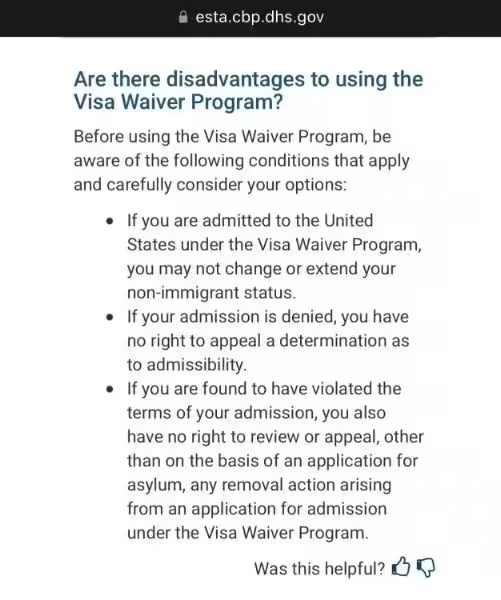American Marrying a Canadian Citizen: A Guide to Navigating the Immigration Maze

Thinking about tying the knot with your Canadian sweetheart and wondering what the immigration process entails? American marrying a Canadian citizen brings a unique set of challenges and opportunities, depending on whether you plan to live in the United States or Canada. This guide will break down the key steps and considerations for both scenarios.
Living in the United States After Marriage
If you, an American citizen, are planning to reside in the United States with your Canadian spouse, you have three primary pathways to consider:
1. The Fiancé(e) Visa
This option is ideal if you haven’t yet married. The Canadian citizen applies for this visa before the wedding, allowing them to enter the U.S. legally to get married. This process involves submitting extensive documentation proving your bona fide relationship and intent to marry. The approval process can take several months, so planning ahead is crucial. Once married, your spouse can then apply for a green card.
This route offers the advantage of your spouse entering the US legally before marriage, avoiding complex procedures after the wedding. However, it requires significant upfront planning and preparation.
2. The Immigrant Visa
If you are already married and reside outside the United States, your Canadian spouse can apply for an immigrant visa from their home country. This involves extensive paperwork demonstrating the legitimacy of your marriage and your spouse’s eligibility for immigration. This process can be lengthy, and your spouse will need to undergo an interview at a US embassy or consulate.
The advantage is that you don’t have to be physically present in the US throughout the application process. The disadvantage is the longer processing time and the need for your spouse to be outside the US during this time.
3. Adjustment of Status
If you are already married and living in the United States, your Canadian spouse can apply for an adjustment of status. This allows them to obtain a green card without leaving the country. This requires filing Form I-130, Petition for Alien Relative, followed by Form I-485, Application to Register Permanent Residence or Adjust Status. This is often the quickest option, but it requires the Canadian spouse to have already entered the US legally.
While this is often the fastest route, it’s only an option if your spouse is already in the US legally. Any prior immigration violations could complicate the process significantly.
Important Considerations for Living in the U.S.:
- Green Card, Not Immediate Citizenship: A green card grants permanent residency, not immediate U.S. citizenship. After three years of continuous residency with a green card, your spouse can apply for U.S. citizenship. They can retain their Canadian citizenship.
- Same-Sex Marriage Recognition: The U.S. only recognizes legally married same-sex couples for immigration purposes. Common-law relationships are not eligible.
- Processing Times: Expect significant delays; processing times for these applications can vary widely.
Living in Canada After Marriage
If you’re planning to make Canada your home after marrying your Canadian spouse, the process differs from the U.S. system.
Applying for Permanent Residency
As an American citizen marrying a Canadian citizen, you have two options:
- Apply for an immigrant visa if you are residing outside Canada. Your Canadian spouse will sponsor your application.
- Apply for permanent residency from within Canada if you are already in the country. Again, your spouse will be your sponsor.
Unlike the U.S., Canada does not have a fiancé(e) visa. Importantly, Canada recognizes both same-sex and opposite-sex marriages, and extends eligibility to common-law partners who have lived together for at least one year. Children of the U.S. spouse (under 22) can also immigrate to Canada.
The process in Canada often emphasizes the strength of your relationship and your ability to support yourselves financially. Thorough documentation is critical.
Important Considerations for Living in Canada:
- Sponsorship: Your Canadian spouse will need to sponsor your application for permanent residency. This involves demonstrating their ability to financially support you.
- Common-Law Partnerships: Canada recognizes common-law relationships for immigration purposes, unlike the United States.
- Children: Dependent children may be eligible to immigrate with you.
- Processing Times: As with the U.S., processing times for Canadian immigration applications can vary significantly.
Beyond Immigration: Practical Considerations
Regardless of whether you choose to live in the U.S. or Canada, several practical aspects require careful planning:
- Tax Implications: Navigating the tax systems of both countries can be complex. You may need to file taxes in both countries, potentially leading to double taxation in some cases.
- Importing Personal Property: Regulations surrounding the import of automobiles, furniture, and other possessions vary between countries.
- Employment Licensing: Obtaining professional licenses (for doctors, nurses, engineers, etc.) in a new country often requires additional certification and examinations.
- Health Insurance: Securing appropriate health coverage in your new country is essential. Understanding the healthcare system of your chosen country is a crucial step.
Seeking Professional Guidance
Navigating the complexities of American marrying a Canadian citizen is a significant undertaking. The immigration regulations of both countries are intricate and subject to change. Seeking professional legal assistance from an experienced immigration lawyer is highly recommended. They can guide you through the process, ensuring you meet all requirements and avoid potentially costly mistakes. Don’t underestimate the importance of expert advice—it can make all the difference in a successful outcome.
Frequently Asked Questions: Marrying a Canadian Citizen and Immigration
What happens when an American marries a Canadian citizen? Does this automatically grant residency or citizenship in either country?
No, marriage to a Canadian citizen does not automatically grant you residency or citizenship in either the United States or Canada. You will need to apply for residency through the appropriate immigration channels in the country where you plan to live.
What are the options for an American marrying a Canadian and wanting to live in the United States?
If you plan to reside in the U.S., there are three main pathways:
- Fiance(e) Visa: This visa allows your Canadian spouse to enter the U.S. legally to marry you. You apply for this before the marriage.
- Immigrant Visa: If you are already married and live outside the U.S., you can apply for an immigrant visa.
- Adjustment of Status: If you are already married and living in the U.S., you can apply for an adjustment of status.
Each option has different requirements and processing times.
What are the options for an American marrying a Canadian and wanting to live in Canada?
If you plan to live in Canada, you can apply for an immigrant visa if you reside outside Canada, or apply for permanent residency from within Canada if you’re already there. Unlike the U.S., Canada does not have a “fiance(e)” visa. Canada also recognizes common-law relationships (after at least one year of cohabitation) for immigration purposes. Children of the U.S. citizen (under 22) may also be eligible to immigrate.
What documents will I need?
The specific documents required will vary depending on the immigration pathway you choose (Fiance(e) Visa, Immigrant Visa, Adjustment of Status, etc.). You should anticipate needing extensive documentation proving your marriage, relationship history, financial stability, and lack of criminal history. It’s crucial to consult with an immigration lawyer to understand all of the necessary paperwork.
How long does the immigration process take?
Processing times vary significantly depending on the chosen pathway, the country (U.S. or Canada), and current immigration caseloads. Expect delays and be prepared for a potentially lengthy process.
What if we are a same-sex couple?
The U.S. only recognizes legally married same-sex couples for immigration purposes. Canada recognizes both same-sex and opposite-sex marriages, as well as common-law partnerships.
What about taxes, healthcare, and employment licensing?
Marrying a citizen of another country introduces complexities in several areas, including:
- Tax Implications: You will need to navigate the tax systems of both the U.S. and Canada.
- Importing Personal Property: Regulations exist for importing automobiles and other possessions.
- Employment Licensing: Obtaining professional licenses (doctors, nurses, etc.) may require additional steps and qualifications.
- Health Insurance: Securing appropriate health coverage in your new country of residence is critical.
Do I need a lawyer?
Navigating U.S.-Canada immigration laws is complex. It is highly recommended that you seek legal advice from an immigration lawyer specializing in U.S.-Canada cross-border matters. They can guide you through the process, ensuring you meet all requirements and avoid potential pitfalls.








